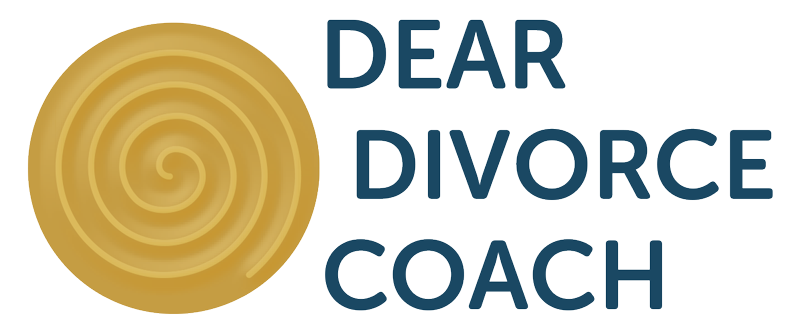Dear Divorce Coach:
My ex and I have officially filed for divorce and I’m working through all the pieces, including figuring out my finances. I had zero involvement in our finances during our marriage; they handled everything so now I’m trying to get the full picture, figure out what I need to do, and how to even get started. Do you have any advice for tackling finances in the midst of a divorce?
– Financial Overload

Dear Financial Overload,
When couples are in the midst of divorce, they have a lot on their minds. Often, the absolute last thing they want to face is their financial picture and what changes are taking place as a result of the dissolution of the marriage. They are typically just trying to get through each day one step at a time. But during a divorce, you and your former spouse will need to make and accept decisions that can have a significant impact on your current and future financial situation and security. Making sure your finances are in order can bring a sense of calm and peace of mind during such a tumultuous time.
Here are a few initial steps you can do to prepare:
1. Know your income before and after divorce
The first item you want to look into is your income. I know, it seems like a no-brainer, but many people are oblivious to what they are actually bringing home each month. You should be sure to consider how much is being taken out of your paycheck for things like insurance, taxes and 401(k) contributions. What, after those deductions, is really being directly deposited in your bank account? Once you understand that figure, you can start to determine whether that will that change after the divorce.
Tax returns for the past two years can also be a good source of financial information. Bringing these to your accountant, attorney or financial professional can help shed some light on the whole picture. Typically, there is supporting documentation that we gather each year and then keep it in the file with the actual return, never to revisit it again. Pull those out, dust them off, and find out what you can glean from them.
2. Review your monthly expenses and what may need to change post divorce
Many of us spend money on products and services that we don’t even realize are adding up to large amounts by the end of the month (e.g., Netflix, Instacart, Peloton, etc.). I stress to my clients the importance of documenting all your expenditures and bouncing them against your income. At some point, you may have to cut back on some of that spending so it is critical that you have a sense of what expenses are essential vs. able to be cut.
Banks and other financial services have created tools that make it a lot easier to track spending by offering apps to digital downloads to spreadsheets so you can easily add them up yourself. Learning how to build a cashflow for yourself can help you see clearly how the monthly expenses are getting paid. Some expenses may change post-divorce too, so this can serve as a baseline for managing expenses once you are on your own.
Once you’ve established your baseline and begin to see the impact your divorce may have (it’s always more expensive to maintain two households and your household income will likely be significantly lower), you should start monitoring your expenses regularly. Keeping track, at a minimum monthly, helps keep you understand spending trends as well as hold yourself accountable to your budget.
3. Track down financial documents and paperwork for other accounts
It may seem daunting, but to ensure you have a full financial picture, you have to essentially audit all accounts involving money in your life. And I recommend getting organized quickly; it helps you and your lawyer in the long run (especially since they charge by the hour!)
You can start with this list here:
- Income tax returns
- Paycheck stubs, W-2 forms
- Financial records (bank statements and loan information)
- Investment account statements
- Employment records
- Pension information
- Retirement savings accounts
- Social Security statements
- Children’s bank accounts
- Debt records (credit card and loan statements)
- Wills and trust agreements
- Cable bills, utilities, mortgage statements
- A money market or CDs at the bank
- Insurance coverage (property, vehicles, personal items as well as life insurance)
Find all of the account status reports and make sure you know the login and password for each of them so you can access them easily. If one person in the married couple managed all of these accounts, it can be difficult for the other person to gather that information. Make sure you are having that conversation before the papers are drafted so you know what assets you have to negotiate and what portion you will end up with post-divorce.
4. Create a budget for during and after your divorce
One of the best ways to become financially independent from your spouse during and after your divorce is to create a budget. Leverage what you now know and understand about your anticipated income/assets and expenses/debts. Factor in additional costs specific to your divorce like lawyer fees and court costs. If you have to move out of your home, you may also have to account for additional expenses like rental fees.
As you assess your current state and build your budget, stay focused on what your goals are for you and your family post-divorce as well as keeping mindful of what you can realistically afford. I often advise clients to tighten their spending as soon as they make the decision to divorce. Restricting spending and saving your money foster stability, allowing you to be in control in what may feel like a chaotic time. It also provides you with some flexibility should you encounter unforeseen costs along the way.
5. Review your insurance policies
Most people take out insurance policies on themselves and their spouse when they get married, buy a house, or start a family. If that was a process you went through, you are paying premiums each year to carry that coverage. Bring the in-force illustrations to your financial professional and review them to see if the coverage is worth carrying anymore. Since there will be no dependent spouse anymore, you may be able to save money by carrying less coverage. If there are minor children involved, there may be a provision in the divorce settlement to carry a certain amount of coverage for their benefit.
Along with that review, make sure you are updating the beneficiary on your retirement accounts and insurance policies. If you don’t, and something unforeseen happens and you pass away, your ex-spouse could inherit your assets that you would most likely have preferred someone else had benefitted from in your absence.
I often work with clients through this process to ensure they don’t enter into this stage uneducated and alone. I help to manage their concerns and bring clarity to their situation. No matter how you look at it, divorce is messy and sometimes money is messy too. Getting organized, understanding your full financial picture (money in, money out), and building a budget are the first steps to set you on the right path to financial empowerment and freedom.
6. Establish your own credit for your financial future
Although mentioned last, this is an important step. If you have not maintained credit in your sole name, establish some. I recommend you change your last name (if you’re planning to) before applying for new credit; this way the accounts will be in the legal name you plan to use in the future. Get a credit card that you will use and pay off monthly. The goal here is to show you can responsibly manage your credit, so be sure that before you apply, you are prepared to make payments on time every month.
There are resources that help you decide which card is best for you. You will need credit in your sole name to make your financial future possible. Begin to build your credit now and take steps to protect and nurture it too as you make responsible financial choices.
In sum, although you may feel overwhelmed, taking concrete steps to understand and control your financial future is one of the most important steps you can take in separation and divorce. Get clear, find a reliable professional to help, as needed, and keep going. You can learn from this experience and do better for yourself financially for a lifetime too.
Best of Luck,
